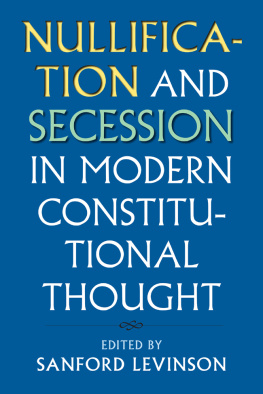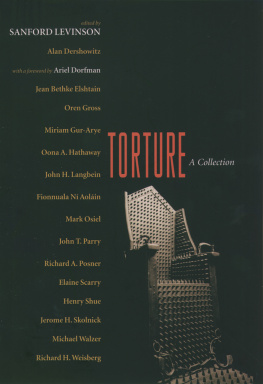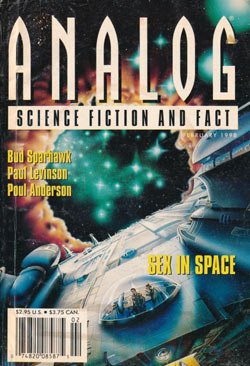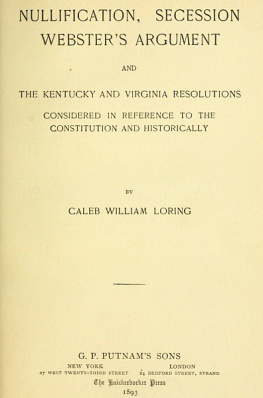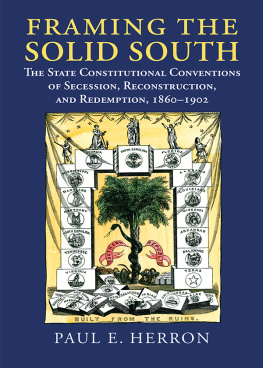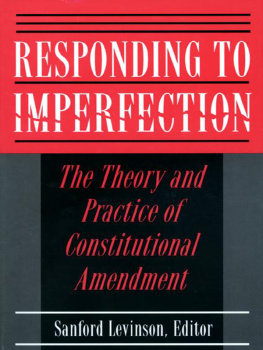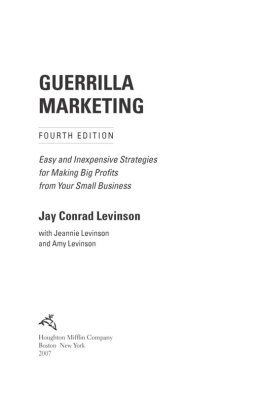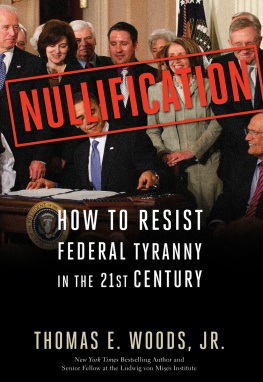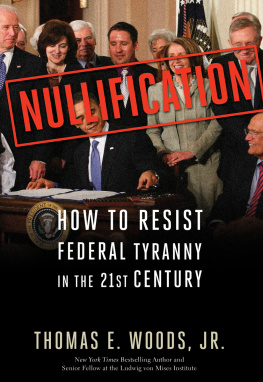2016 by the University Press of Kansas
All rights reserved
Published by the University Press of Kansas (Lawrence, Kansas 66045), which was organized by the Kansas Board of Regents and is operated and funded by Emporia State University, Fort Hays State University, Kansas State University, Pittsburg State University, the University of Kansas, and Wichita State University
Library of Congress Cataloging-in-Publication Data
Names: Levinson, Sanford, 1941 editor.
Title: Nullification and secession in modern constitutional thought / edited by Sanford Levinson, University Press of Kansas.
Description: Lawrence, Kansas : University Press of Kansas, 2016. | Series: Constitutional thinking | Includes bibliographical references and index.
Identifiers: LCCN 2016018935
ISBN 9780700622979 (cloth : alk. paper)
ISBN 9780700622993 (pbk. : alk. paper)
ISBN 9780700622986 (ebook)
Subjects: LCSH: Nullification (States' rights) | SecessionUnited States. | States' rights (American politics) | Constitutional lawUnited States.
Classification: LCC KF4613 .N85 2016 | DDC 342.73/042dc23
LC record available at https://lccn.loc.gov/2016018935.
British Library Cataloguing-in-Publication Data is available.
Printed in the United States of America
10 9 8 7 6 5 4 3 2 1
The paper used in this publication is recycled and contains 30 percent postconsumer waste. It is acid free and meets the minimum requirements of the American National Standard for Permanence of Paper for Printed Library Materials Z39.48-1992.
Introduction
Zombie (or Dinosaur) Constitutionalism?
The Revival of Nullification and Secession
Sanford Levinson
This book is the outgrowth of an invitation by Mark Killenbeck to deliver a lecture at the University of Arkansas Law School in September 2013, which was published in the Arkansas Law Review and is republished with significant revisions in this volume. He also arranged to have several people deliver responses to the lecture. As a result of the discussion there, I was persuaded that the questions raised deserved more substantial elaboration, and I was fortunate enough to recruit a wonderful array of scholars for further exploration of the topics. Though this book was in substantial measure triggered by my lecture, this book in no way should be viewed as being about it. A few authors advert to it; most do not. What is important is the grappling with the important issues of nullification (or neonullification) and secessionism inasmuch as these have become part of discussion not only in the United States but also abroad. Although this book was conceived and invitations rendered in 2014, the issues have, for better or quite possibly for worse, become less purely academic; they are the continuing subjects of front-page news articles and passionate public discussion.
I take my title for this introductory essay from Christian Fritz, who broached the concept of constitutional dinosaursideas seriously discussed, considered, and acted upon [in the past], but which are foreign to our present constitutional understandings.1 In our contemporary world, though, we know that remarkable things are becoming altogether thinkable: Consider a 2014 article in the New York Times Magazine on the prospect of resurrecting wooly mammoths and other extinct species thanks to the miracle of DNA cloning,2 not to mention apparent proposals afoot to re-create a real live Neanderthal!3 So we should recognize as well that certain ideas about the American constitutional order, also thought to be extinct and believed by some to be foreign to our present... understanding of constitutional possibility, may be rising from their graves. My friend Jack Balkin coined the term zombie constitutionalism, and one might imagine proponents of these ideas long thought dead, especially if we ourselves are opposed to them, as analogous to zombies trying to capture our brains. Proponents of these ideas would undoubtedly find more attractive metaphors to describe themselves.
The first central idea, the topic of most of the essays below, involves nullification or, as I suggest in my own essay, neonullification. These terms are not self-defining, and one will find some important differences with regard to the definitions proffered by the various authors, especially if one adds to the mix the associated term interposition, which is sometimes used as a near synonym for nullification. My own first essay should perhaps be viewed as a kind of tour dhorizon, which is followed by a number of far more specific and perhaps more meticulous explorations. Thus the essay that follows, by Jonathan Gienapp, carefully explicates James Madisons Virginia Resolution of 1798 and then the Virginia Report of 1799. Although they are often simply coupled with the Kentucky Resolutions of 1798, drafted by Madisons friend, Thomas Jefferson, Gienapp demonstrates that they formulate two quite different ideas, with considerably divergent implications, at least in the mind and writing of Madison. That being said, it is certainly the case that authors cannot necessarily control the use made of their own ideas. James H. Read and Neal Allen note, altogether accurately, the conflation of the two notions by those in the 1950s, especially the influential journalist James J. Kilpatrick, who tried to resist the implementation of the Supreme Courts decision in Brown v. Board of Education by evoking (and running together) such American icons as Jefferson, Madison, and John C. Calhoun.
Read and Allen, after presenting a plethora of contemporary examples of state invocation of the term nullification, organize their own essay around what might be termed the classical definition of nullification: the theory that each individual state is fully sovereign and as such final judge of its own constitutional rights and obligations; that consequently it may legitimately rule that any federal act... is unconstitutional; and, most importantly, that it may act on this judgment by clocking the implementation of that federal act within the states boundaries. This offers a template against which one can measure certain contemporary claims and separate them into genuine or faux claims of nullification. They discuss a number of proposals in American state legislatures that deliberately [echo] the urtext of nullificationist arguments, Thomas Jeffersons Kentucky Resolutions of 1798,4 even if, at the end of the day, the proposals veer in important ways from the would-be precedent.
Read and Allen and I are all interested in the veering, though I suspect that I view as more independently significant what I am willing to term neonullification, which relies less on the legalistic claim to be able to invalidate federal legislation and more on the various tactics of resistance that states and localities are able to rely on, often quite successfully. Heather Gerken and Jessica Bulman-Pozen have advanced the extremely provocative notion of uncooperative federalism that dispenses with the emphasis on a truly constitutionally protected realm of state autonomy (or sovereignty) in favor of the practical ability of states and localities to get away, as it were, with flouting what lawyers might otherwise recognize as clearly valid federal commands. The paradox is that less flamboyant claims than the purported ability fully to nullify federal legislation may in fact lead to more success in rendering it nearly irrelevant.
 University Press of Kansas
University Press of Kansas
